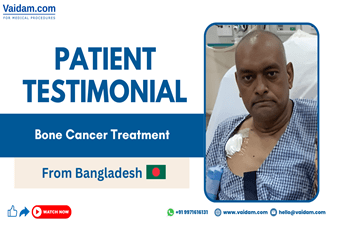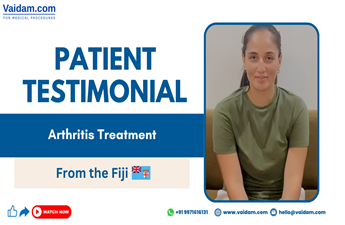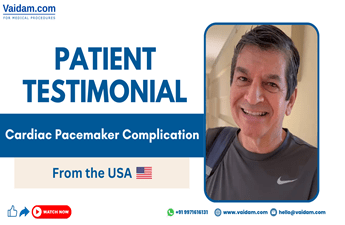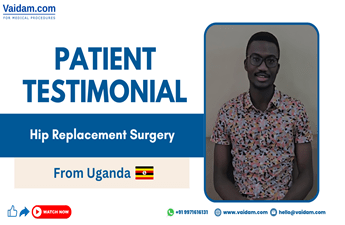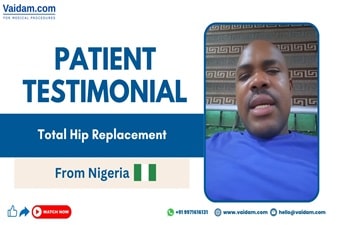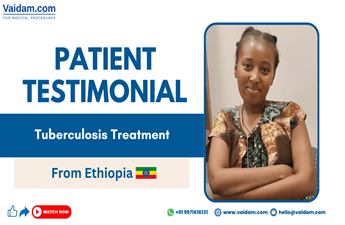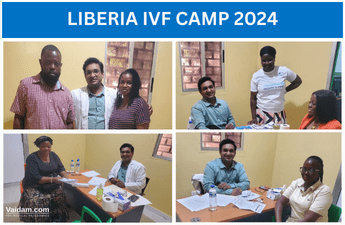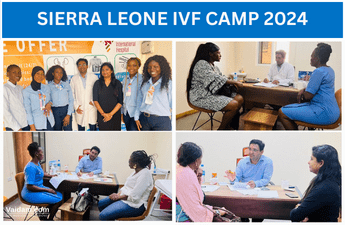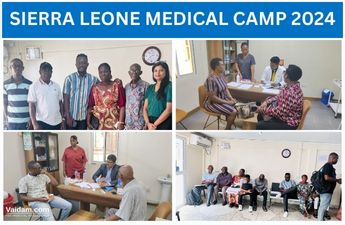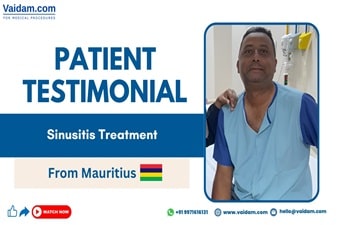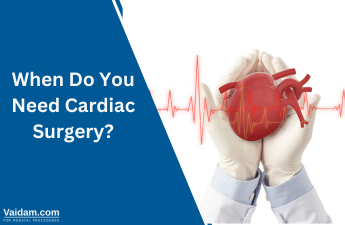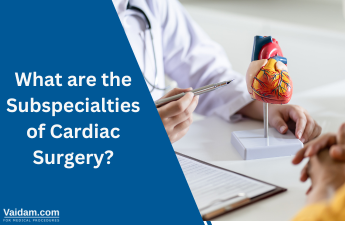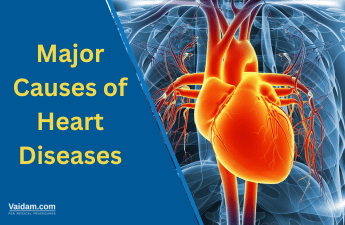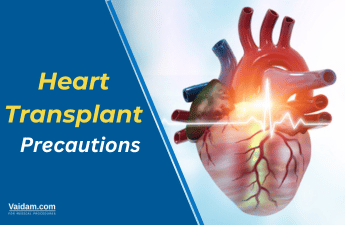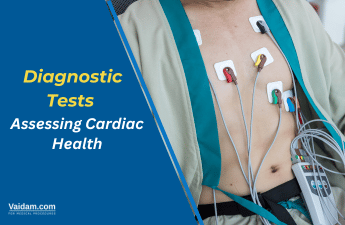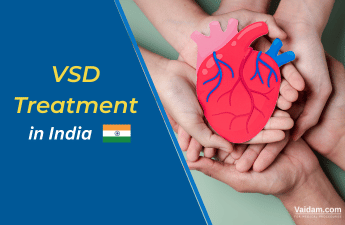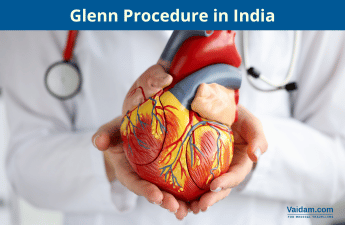
The heart is an incredible organ that tirelessly pumps blood throughout our body to keep us alive. The heart follows a specific rhythm to ensure that each beat is perfectly timed. However, there are times when this rhythm fluctuates, leading to a condition known as arrhythmia.
Arrhythmia is an abnormal heart rhythm. It can manifest in various forms, from minor irregularities to life-threatening conditions.
Hospitals in countries like India, Turkey, Thailand, Germany, and the UAE comprise cutting-edge technology that can be effectively used to treat arrhythmia. These hospitals have a pool of highly specialized cardiologists who effectively diagnose and treat the disease.
Get in Touch with Medical Experts
What is Arrhythmia?
Arrhythmia, or dysrhythmia, encompasses any abnormal rhythm of the heart. In a healthy heart, electrical signals travel through a well-defined pathway. This ensures that the heart's chambers contract in a coordinated manner. This coordinated contraction pumps blood efficiently throughout the body.
In arrhythmia, this electrical signaling system malfunctions, leading to irregular heartbeats. These irregularities can manifest as:
- The heart is beating too fast (tachycardia)
- The heart is beating too slowly (bradycardia)
- An irregular, unpredictable pattern
What are the Types of Arrhythmias?
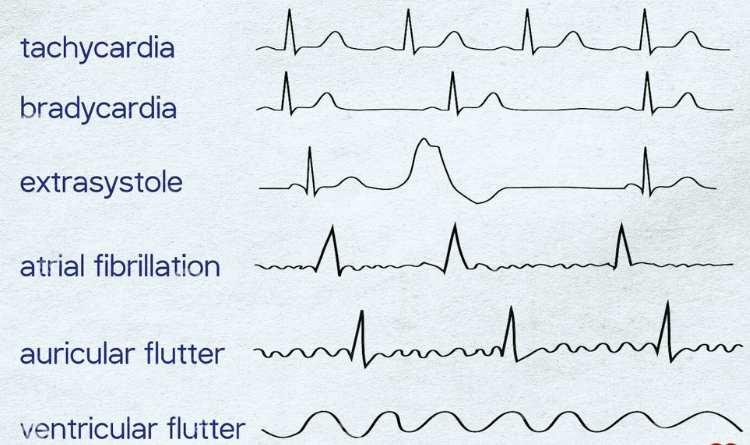
Arrhythmias can be classified into the following different types:
- Atrial Fibrillation (AFib): This occurs when the heart's upper chambers tremble instead of contracting.
- Ventricular Tachycardia (VT): VT is a rapid heart rhythm originating in the ventricles. VT can be life-threatening if not treated on time.
- Atrial Flutter: Similar to AFib, atrial flutter involves rapid, abnormal contractions of the atria.
- Bradycardia: Characterized by a slow heart rate, usually fewer than 60 beats/minute. It can result from aging, certain medications, or heart diseases.
- Supraventricular Tachycardia (SVT): SVT is a rapid heartbeat that originates above the ventricles. It can lead to palpitations, dizziness, or fainting.
- Premature Contractions: These occur when the heart experiences extra, early beats, which can feel like a fluttering or pounding in the chest.
What are the Symptoms of Arrhythmia?
The symptoms of arrhythmia vary from patient to patient, as some individuals may not experience any noticeable symptoms at all. When symptoms do occur, they can be unnoticeable, depending on the type and severity of the arrhythmia.
Common symptoms of arrhythmia include:
- Palpitations
- Fatigue
- Dizziness or lightheadedness
- Shortness of breath
- Chest pain or discomfort
- Rapid heartbeat
- Slow Heartbeat
- Fainting (Syncope)
The severity of symptoms does not always indicate the seriousness of the arrhythmia. Some potentially life-threatening arrhythmias may have mild or no symptoms, making early detection and diagnosis essential.
What are the Causes and Risk Factors of Arrhythmia?
Arrhythmias can develop for various reasons. The causes of arrhythmia can be broadly categorized into the following two groups:
-
Heart-Related Causes:
- Heart attacks, coronary artery disease (CAD), and heart failure can disrupt the heart's electrical system, leading to arrhythmias.
- Prior heart surgeries, trauma, or infections can create scar tissue that interferes with the heart's electrical signals.
- Congenital heart disease or structural abnormalities present at birth can predispose individuals to arrhythmias.
- High blood pressure (Hypertension) may increase the risk of arrhythmias, particularly AFib.
- Problems with heart valves can disrupt blood flow and lead to arrhythmias.
-
Non-Heart-Related Causes:
- The risk of developing arrhythmias increases with age as the heart's electrical system may deteriorate over time.
- Medications, including certain antibiotics, asthma drugs, and antidepressants, can trigger arrhythmias as a side effect.
- Excessive consumption of caffeine, nicotine, or recreational drugs can increase the risk of arrhythmias.
- Heavy alcohol consumption can disrupt the heart's electrical signals and lead to arrhythmias, particularly atrial fibrillation.
- Stress and anxiety can stimulate the sympathetic nervous system, potentially leading to arrhythmias.
- Abnormal levels of potassium, sodium, or calcium in the body can affect the heart's electrical system.
- Untreated sleep apnea results in a higher risk of arrhythmias, particularly AFib.
- A family history of arrhythmias or sudden cardiac death may increase an individual's susceptibility.
- Poorly controlled diabetes can damage nerves that control the heart's rhythm, increasing the risk of arrhythmias.
It is important to remember that while these factors may contribute to arrhythmias, not everyone with these risk factors will develop an abnormal heart rhythm. Also, arrhythmias can occur in individuals with no identifiable risk factors.
How is Arrhythmia Diagnosed?
Proper diagnosis is important to determine the type and severity of arrhythmia and guide treatment decisions.
The diagnostic process may involve the following:
- A detailed medical history, including family history, current medications, and lifestyle factors, is essential for assessing arrhythmia risk factors.
- A thorough physical examination allows the healthcare provider to assess symptoms, listen to the heart, and check for signs of other medical conditions.
- An electrocardiogram (ECG or EKG) records the electrical activity of the heart and detects arrhythmias by measuring the heart's rhythm and rate.
- Holter monitor, a portable device, continuously records the heart's electrical activity over 24 to 48 hours, providing a more extended assessment of heart rhythms.
- An event monitor, worn for an extended period, records data only when the patient activates it, typically when symptoms occur.
- An echocardiogram can identify structural issues contributing to arrhythmias.
- A stress test evaluates how the heart responds to physical activity, often performed on a treadmill or stationary bike. It can uncover arrhythmias that occur during exertion.
- In the Electrophysiology Study (EP Study), a catheter is inserted into the heart to measure electrical signals and identify the source of the arrhythmia.
- Blood tests can identify underlying causes of arrhythmias, such as electrolyte imbalances or thyroid dysfunction.
- Implantable devices such as loop recorders or pacemakers continuously monitor heart rhythm over an extended period and help diagnose intermittent arrhythmias.
What are the Treatment Options Available for Arrhythmia?

Treatment goals focus on:
- Restoring normal heart rhythm
- Controlling symptoms
- Reducing the risk of complications, including stroke or heart failure
The primary treatment options for arrhythmia include the following:
- Lifestyle Modifications:
- Reduction in caffeine and alcohol intake can help manage arrhythmias, as they can trigger irregular heartbeats.
- Quitting smoking is essential, as nicotine can exacerbate arrhythmias.
- Stress-reduction techniques, such as yoga, meditation, and deep breathing exercises, can help manage arrhythmia symptoms.
- Achieving and maintaining a healthy weight improves heart health while reducing the risk of arrhythmias.
- Engaging in regular, moderate-intensity exercise can improve cardiovascular health and help manage arrhythmias.
- Medications:
- Antiarrhythmic drugs restore and maintain normal heart rhythm. They are often prescribed for atrial fibrillation and ventricular arrhythmias.
- Beta-blockers slow the heart rate and reduce the force of contractions, making them useful for managing tachycardias and certain arrhythmias.
- Calcium channel blockers can help control heart rate and are often used for atrial fibrillation and atrial flutter.
- Blood thinners (anticoagulants) may be prescribed in patients with AFib to reduce the risk of heart stroke and blood clots.
- Electrical Cardioversion: In this procedure, an electric shock delivered to the heart restores its normal rhythm. It is often used for atrial fibrillation and atrial flutter.
- Catheter Ablation: This invasive procedure involves threading a catheter through blood vessels to the heart. Radiofrequency energy or freezing is then used to destroy or scar the tissue responsible for the arrhythmia.
- Pacemakers: Pacemakers are implanted devices that monitor the heart's electrical activity and deliver electrical impulses to maintain a regular heartbeat. They are used primarily to treat bradycardias.
- Implantable Cardioverter-Defibrillators (ICDs): ICDs are similar to pacemakers but can also deliver shocks to the heart to terminate life-threatening ventricular arrhythmias.
- Surgical Procedures: In some cases, surgical interventions may be necessary to treat arrhythmias, such as the Maze procedure, which is performed during open-heart surgery to treat atrial fibrillation.
It is important to note that the choice of treatment depends on the specific arrhythmia, its underlying causes, the patient's overall health, and their preferences. Treatment plans are developed collaboratively between the patient and their healthcare provider to achieve the best possible outcome.
What is the Cost of Arrhythmia Treatment?
The cost of arrhythmia treatment is as follows:
| Treatment | |||||
| Radiofrequency Ablation | USD 1,100 to USD 1,500 | USD 6,000 to USD 7,450 | USD 7,020 to USD 8,580 | USD 9,000 to USD 11,000 | USD 19,000 to USD 22,000 |
| Automatic Implantable Cardioverter Defibrillator (AICD) | USD 7,450 to USD 9,900 | USD 1,600 to USD 3,000 | USD 15,000 to USD 20,000 | USD 16,650 to USD 20,350 | USD 14,000 to USD 18,000 |
In Short
While some arrhythmias are benign and manageable with lifestyle changes, others can be life-threatening, necessitating medical intervention. Early diagnosis, appropriate treatment, and proactive management are key to living a fulfilling life with arrhythmia. Remember, with the right care and support, many individuals with arrhythmia continue to lead active and fulfilling lives.



